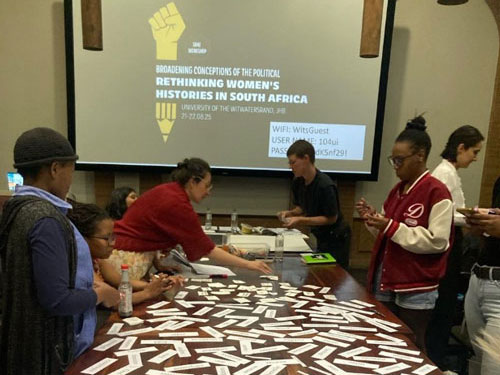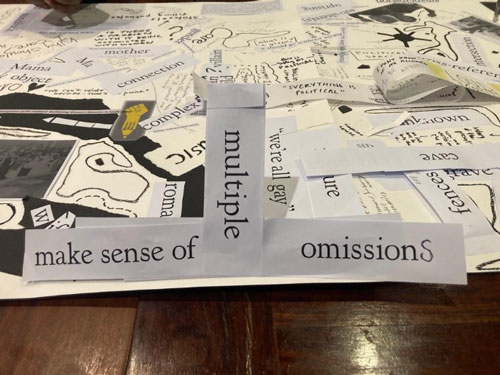Rethinking Women’s Histories in South Africa
-
On August 21 - 22, 2025, early career researchers came together from around South Africa to participate in a workshop hosted by the Wits University History Department, in collaboration with colleagues from University of Johannesburg and University of Cape Town. The workshop sought to reimagine how we understand political agency by centering women’s experiences in 20th-century South African struggles. By interrogating the diverse modes of resistance and emancipatory praxes of women – from organised activism to everyday defiance – the workshop aimed to reshape dominant historiographies of political life in Southern Africa.
The workshop was funded by the South African Historical Journal (SAHJ) in collaboration with the South African Historical Society (SAHS) and served as a space to workshop participants’ papers for inclusion in a special issue of the South African Historical Journal, guest edited by the workshop convenors, Dr Tara Weinberg (Wits), Dr Camalita Naicker (UCT) and Dr Sarah Bruchhausen (UJ).
Submissions engaged with the following themes: redefining the political; women in popular movements; organisational and associational politics and practices; land, commons and social reproduction; the politics of heritage; music and affective histories of black women and their relationships. One contribution took the form of speculative history: a play on the life of Elizabeth Nomthetho M’belle, who happened to be married to Sol Plaatje.
Participants circulated their draft papers in advance of the workshop, meaning that everyone was able to offer in-depth comments on each other’s papers. We also invited senior scholars in the field of gender history in South Africa to serve as ‘readers’ and guide the papers towards potential publication. The workshop dinner, hosted at the Afrikan Freedom Station, featured an ‘open-mic’ session where participants shared creative work (poetry, drag, music etc.) that spoke to their research. For the final session of the workshop, the participants used snippets of their archival research to create a collage that documented our discussions as a collective over the two days of the workshop (pictured below).
 |
 |

